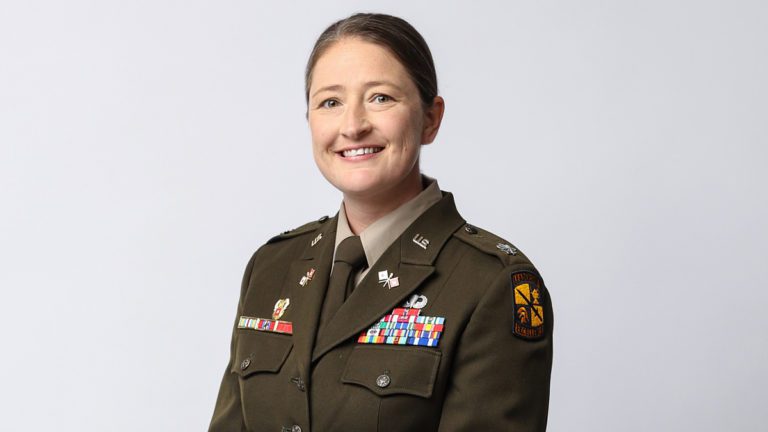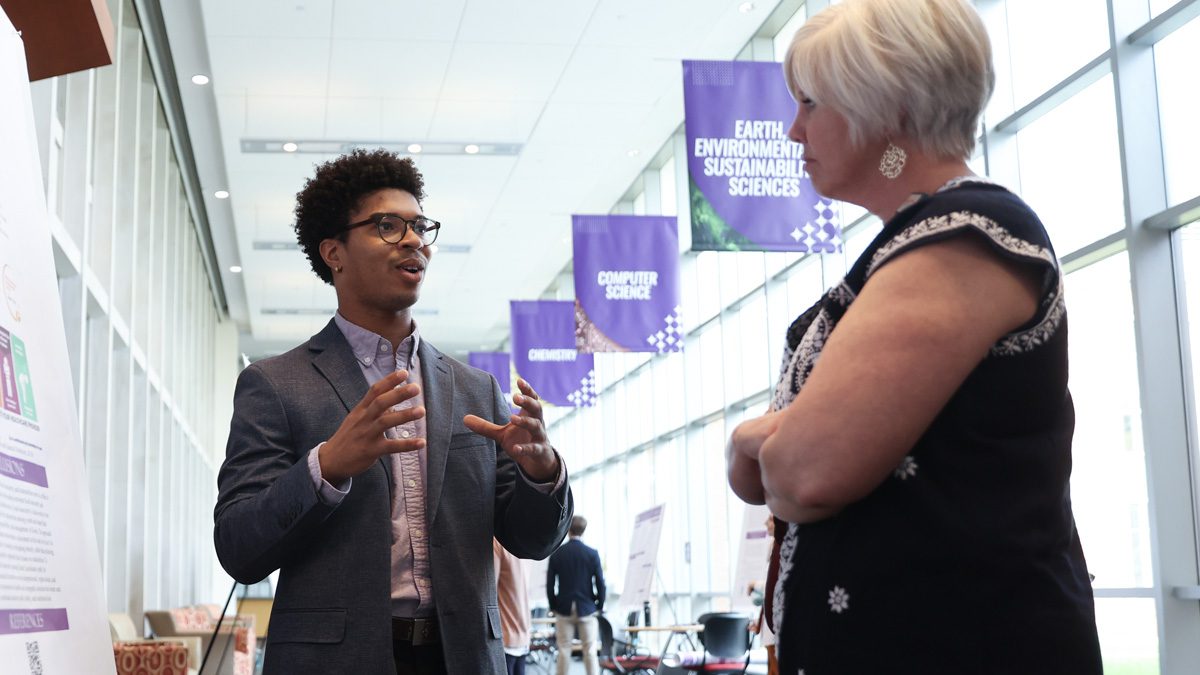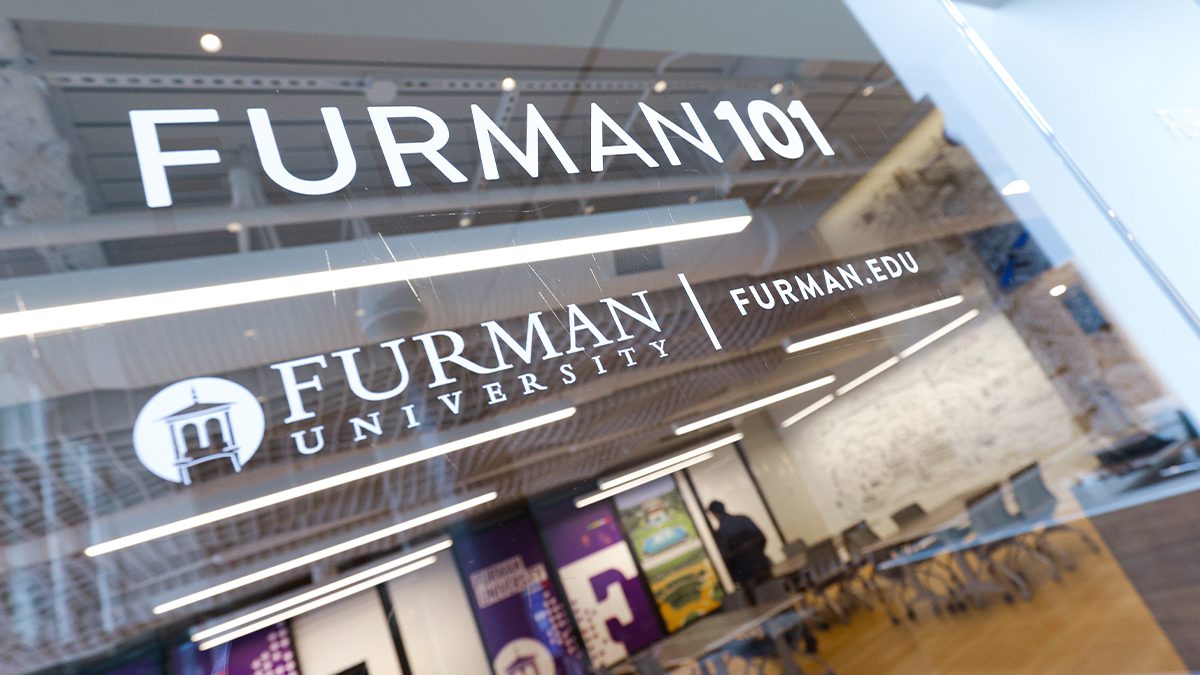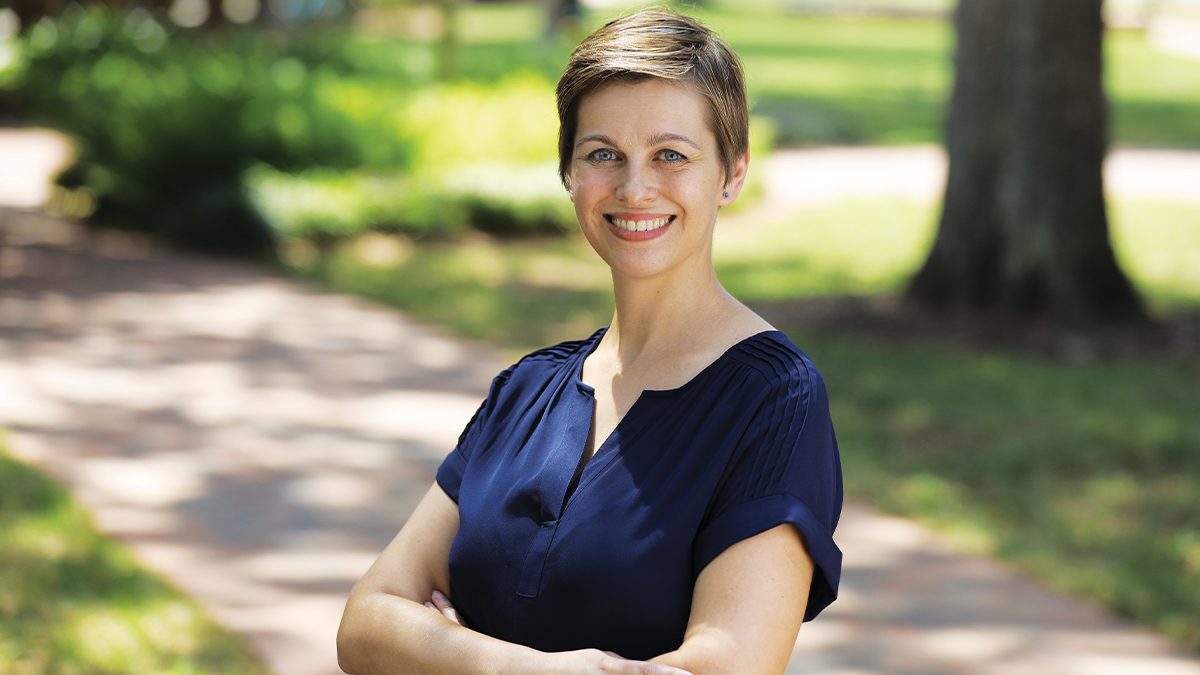Q&A with
Lt. Col. Sarah M. Whitten

Lt. Col. Sarah M. Whitten is the first woman to chair Furman’s Department of Military Science and serve as the head of the university’s ROTC.
Staff Report
Lt. Col. Sarah M. Whitten came to Furman in 2021 after serving as the J3 director of operations for the Joint Communications Support Element at MacDill Air Force Base in Tampa, Florida, where she oversaw global communications in support to Combatant Command requirements.
Do you feel any sense of historical significance?
SW: “To be honest, I didn’t really think about the whole ‘first female’ thing until after I arrived at Furman. In my almost 16-year career in the Army, I have been the first female in several of my key assignments and it was never treated as anything outside of normal progression. It wasn’t until I got on campus and met with some of our female cadets during my first couple of weeks that I realized how much representation matters as they start their journey of service. They shared with me that they had been looking forward to having a female professor of military science who understood their unique challenges and would provide a different perspective. I realized that I had an even deeper purpose than I previously realized.”
What do you think draws students to Furman’s military science and ROTC offerings?
SW: “Furman Army ROTC historically and consistently produces leaders of character who have gone on to be extremely successful in the active duty Army, Army Reserves and National Guard. The caliber of the students who are drawn to Furman and then subsequently participate in ROTC has established a strong reputation for the program and university across the Army. Over 65% of our cadets are currently on full scholarships, which includes a monthly stipend, allowing them to focus on experiencing The Furman Advantage and not on how to pay for school. Army ROTC provides critical leadership development and experiences that are foundational to being successful Army officers. Knowing at the end of their time at Furman that they will commission as second lieutenants in one of the Army components provides that clear vision of the future for which they can aspire.”
What unique growth experiences do students gain from being involved?
SW: “What makes Army ROTC great is that our students are a part of over 12 different academic departments on campus. Military science is not a degree program in itself, although I’m sure most of our cadets feel that the workload equates to a second degree. This means that we get to draw on the experiences from faculty from across Furman as they develop our cadets in and out of the classroom. While the majority of our cadets are on a path to commission and enter military service upon graduating, this isn’t a requirement to participate in the first two years of Army ROTC. We have students who join ROTC to grow as leaders, experience problem-solving, orienteering, water survival and physical fitness. Our cadets get valuable training opportunities, from jumping out of airplanes to interning with Army medical or legal professionals.”
What’s been both the best and hardest things about serving in this position?
SW: “The best thing, hands down, is watching the cadets grow and develop as leaders every single day. I have a front-row seat to observe them work through problems and challenges, step up as leaders, and create an atmosphere of teamwork and camaraderie that will sustain them through future challenges for years to come. There is no better way to do that than to be able to directly impact the leaders of tomorrow in the classroom and leadership laboratory environment. I would have to say one of my challenges is ensuring that we properly engage and educate the greater Furman University community in order to increase understanding of what our cadets are doing and why. The impact of training and development that starts at Furman University establishes their trajectory for years to come.”
Learn more about the Furman Military Alumni Association at furman.edu/FMAA.
Photos by Jeremy Fleming ’08

At this year’s event, students invited the campus community into their research, service learning, creative works and other engaged learning experiences.

